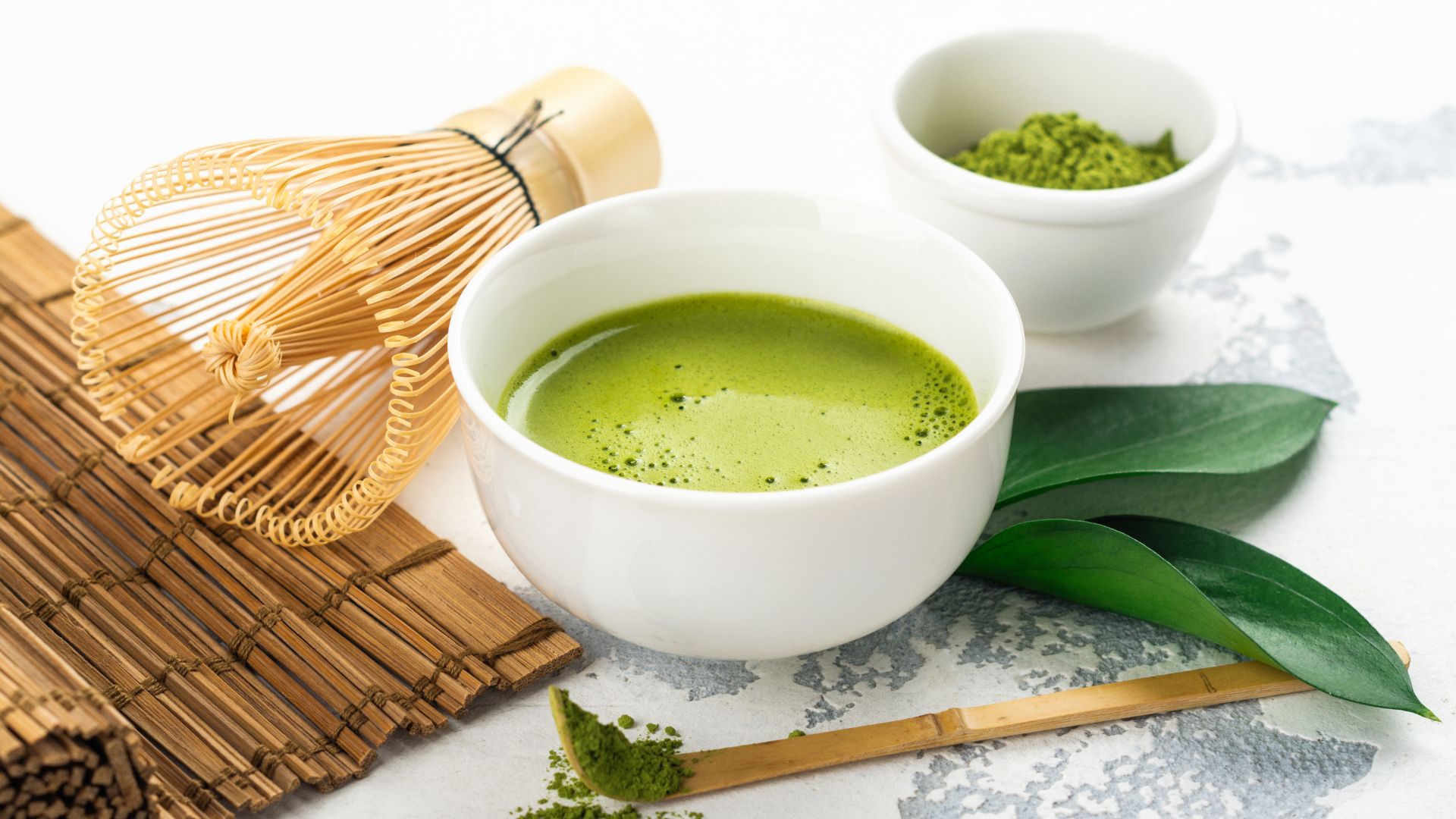What are the benefits of matcha for slimming?
Matcha is a type of green tea that is carefully grown and harvested. Matcha is made from the whole leaf, which is the main reason behind its many superior health benefits.
Matcha has been grown in Japan and China for many years, but in the past couple of years, matcha has gained popularity around the world. The leaves are ground into powder and mixed with water or milk, unlike regular green tea, which is prepared by soaking the tea leaves in water and then discarding them. Unlike other teas, matcha does not stay fresh for long periods, so it is best purchased in small, airtight containers and stored in the refrigerator. Aside from drinks, matcha is also a popular ingredient in savory dishes and desserts. It is best enjoyed after a meal rather than during it, and is most beneficial after breakfast. The official nutritional profile also states that one cup of matcha is equivalent to 10 cups of regular green tea in terms of nutritional value and antioxidant content.
A study published in the Journal of Medicinal Food also indicated that it tested the effects of matcha tea on rats with type 2 diabetes and found that it has an effect in reducing cholesterol, blood sugar, and harmful fats. It has also been shown to protect against liver and kidney damage.
Matcha contains powerful antioxidants in much higher quantities than green tea. This means that the documented benefits of green tea – reduced risk of stroke, diabetes, anti-cancer properties, weight loss and more – will also apply to matcha, but in a more powerful way. Of course, with limited research, this is just speculation at the moment, but early indications look promising.
According to Caffeineinformer.com , a cup of tea made with matcha powder contains 70 mg of caffeine (coffee contains about 160 mg of caffeine per cup).

How does matcha tea affect weight loss?
Matcha contains catechins and caffeine, two compounds that create a thermal effect on the body known as thermogenesis. Catechins, a class of antioxidants, also help break down body fat, and when combined with caffeine, can help increase the amount of energy the body uses.
A study published in the American Journal of Clinical Nutrition also found that consuming matcha green tea can increase thermogenesis (the rate at which the body burns calories) from 8% to 10% of daily energy expenditure, and to between 35% and 43% of expenditure. Total energy expenditure.
How much matcha tea should I use?
Use between 1 and 2 teaspoons of matcha per 6-8 ounces of milk depending on your preference for bold green tea flavor. You can experiment gradually and add more, and you can always dilute your drink with more water or milk.
What is the best water temperature for preparing matcha?
Use under boiling water. Even if you are preparing iced milk with matcha, preparing the matcha into a paste with hot water is a good way to extract the best flavor from the tea. Avoid boiling water as this will “burn” the tea and bring out the bitter flavour. On the contrary, using ice will highlight the sweet taste.
To do this, combine matcha, ice and water in a bowl and shake well for a rich drink and a vibrant-tasting matcha base.
Benefits of matcha tea:
1. It contains a high percentage of antioxidants
Matcha is rich in catechins, a class of plant compounds found in tea that act as natural antioxidants.
Antioxidants help stabilize harmful free radicals, compounds that can damage cells and cause chronic disease.
Matcha grows in the shade. When the leaves are harvested, the catechin content is lower than other green teas. However, when dissolved in water, it produces 3 times more.
Including matcha in your diet can increase your antioxidant intake, which may help prevent cell damage and reduce your risk of many chronic diseases.
2. Helps protect the liver
The liver is vital to health and plays a key role in flushing out toxins, metabolizing medications, and processing nutrients.
A 2015 review of 15 studies found that drinking green tea was associated with a lower risk of liver disease.
More research is needed to look into the effects of matcha tea on the general population since most research is limited to studies looking at the effects of green tea extract on animals.
3. Enhances brain functions
Some research shows that several components of matcha can help boost brain function.
One study of 23 people looked at how people performed on a series of tasks designed to measure brain performance.
Some participants took matcha tea or a bar containing 4 grams of matcha, while the control group took a placebo tea or bar.
Those who took matcha showed improvements in attention, reaction time, and memory compared to those who took a placebo.
4. Helps prevent cancer
Matcha contains some compounds that have been linked to cancer prevention in test tubes and animal studies.
5. Promotes heart health
Some research has suggested that drinking green tea, which has nutritional properties similar to drinking matcha, may help protect against heart disease.
6. It helps you lose weight
Green tea is known for its ability to promote weight loss and is often featured in weight loss supplements.
A 2020 study concluded that, combined with dietary and exercise measures, consuming up to 500 mg daily of green tea for 12 weeks may reduce BMI.
7. Matcha tea is easy to prepare
There are many ways to enjoy matcha.
You can make traditional matcha tea by sifting 1-2 teaspoons (2-4 grams) of matcha powder into your cup, adding 100 ml (100 ml) of hot water, and mixing together.
Does matcha help target belly fat for weight loss?
Yes it is! Studies have shown that consuming at least 1-4 grams of matcha green tea daily (one to four cups) can significantly reduce body fat composition and precisely target and dissolve belly fat.
One notable study found that matcha is particularly beneficial for increasing belly fat loss when consumed before workouts. The study participants committed to eating a cup of matcha before exercising for 3 hours every week for twelve weeks. If you are trying to lose belly fat, eating a cup of matcha before training can help you get the results you want faster.
Our product: matcha cookies
References:
Ø https://www.health.com/nutrition/what-is-matcha
Ø https://matcha.com/blogs/news/matcha-for-weight-loss-questions-and-answers-according-to-research
Ø https://matchasource.com/matcha-tea-for-weight-loss/

